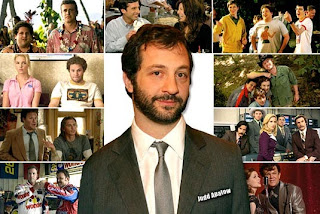by Charity Erickson
One cool fall evening in 2006, I resolved to do something
horribly naughty. My curiosity had gotten the better of me. I snuck a bottle of
Jamison into the Christian community house where I was living and locked myself
in my bedroom. I was going to do the nasty deed.
I was going to watch The
40 Year Old Virgin.
I feared hellfire and judgment—at least, from my roommates.
I laughed quiet, like this:
Oh, and then this happened:
And finally, this:
I loved it. I LOVED it. And the thing I couldn’t get
over—the biggest joke of all—was that this R-rated comedy ultimately affirmed
abstinence as a life choice. Sure, it also introduced the term “f--- buddy” to
the public lexicon, but in the end, the film portrayed a “virgin’s” wedding
night in the same way a True Love Waits rally might—as a time of transcendent
ecstasy, as something of value. (Though TLW would certainly not approve of that
pagan music from Hair.)
I’d never heard of “purity culture” or any critique thereof,
so at that time I was pretty excited about all things “virgin.” In The 40 Year Old Virgin I saw for the
first time something I valued depicted on-screen in a way that didn’t make me
want to excuse myself from normal society and slink away to die a pariah’s
death outside the city walls, moldering in a puddle of embarrassment. I began a
rather promiscuous love affair with entertainment media, and my views about
what constituted “positive” entertainment started to change.
 I was fascinated by the way Judd Apatow managed to weave
themes of love, fidelity, responsibility, kindness and finding life’s meaning
into his films while at the same time infusing his work with genuine humor. I
had read some books about “Christian” filmmaking, all of which promoted the use
of grand metaphors and symbolism as the means for presenting positive values—serious
stuff. Where was the laughter, the joy?
I was fascinated by the way Judd Apatow managed to weave
themes of love, fidelity, responsibility, kindness and finding life’s meaning
into his films while at the same time infusing his work with genuine humor. I
had read some books about “Christian” filmmaking, all of which promoted the use
of grand metaphors and symbolism as the means for presenting positive values—serious
stuff. Where was the laughter, the joy?
In so much of “Christianized culture,” there is an absence
of genuine humor. I submit this as the reason: Christians do not appreciate the
power of sacrilege.
Duh, right? But really, it’s a travesty. Because it’s
important that we get a little irreverent once and awhile—profane, even, if the
situation calls for it—if we are to experience the fullness of life we are
promised by Christ. Here’s what I mean:
Humor is about subverting social laws, and so is faith—but more on that later. When we sense a social law is being broken, it
creates psychic tension—and laughter is one way in which humans respond to this
tension. We laugh, because we feel free from social laws which are absurd and
oppressive. I believe that truly satisfying humor goes further than subverting
social norms—its presses us to reconsider our values, for the sake of affirming
life, or revealing difficult truths.
Humor that creates tension without a release into a new
perspective might make you chuckle for a time, but can leave you feeling like
you just waded through a slough of oppressive yuck. Alternately, humor that
“does something” is life-giving. Take Louis CK. Even when he is tearing into
religious folks, he doesn’t do it simply to mock and denigrate. That would be
cruel; the only person who would laugh at cruelty is a sociopath. No, Louis CK
pushes back against the social laws guarding religious identities in order to
expose hypocrisy and theologically-justified violence.
Exposing sources of oppression promotes the cause of love in
the world. This is why we feel like we can laugh along with Louis CK’s jokes
even when they are at our expense. We recognize and identify with his goal: to
see people freed from oppressive systems, so that somehow in this dark world,
they might experience joy.
I have this fantasy of how the disciples responded whenever
Jesus undermines the authority of the religious gatekeepers of his day. Like
when the Pharisees question whether it is right for Jesus healing on the
Sabbath, and he says, “Oh really?” And heals the guy anyway—in their synagogue,
no less. I can see Jesus’ friends busting up behind him, shocked, but thrilled.
As you can see, in Jesus, we find sacrilege—stealing back
what the religious law says we are not to have—to be a cornerstone of the
Christian faith. He “subverts the norm,” paving the way for us to experience freedom
from the laws that bind us and the joy that freedom brings.
Charity Erickson and her husband Lance live and work together in the suburbs of Minneapolis, Minnesota. Check out her blog for more of her writing and follow her on Twitter @CharityJill.
You can follow On Pop Theology on Twitter @OnPopTheology or like us on Facebook at www.facebook.com/OnPopTheology.
You might also like:
- On Being Enlightened
- The Meaning of the End
- God Doesn't Want You To Be Happy: Hemlock Grove and Dysfunctional Christianity







No comments:
Post a Comment